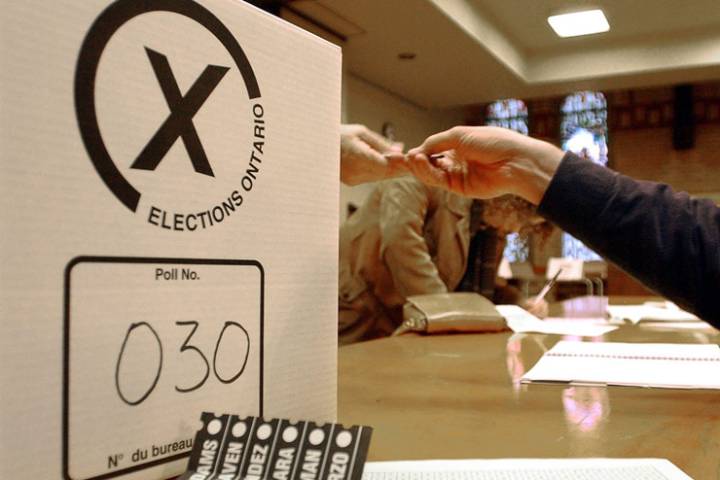TORONTO – Legislation that gives Ontario municipalities the option of using ranked ballots in the next municipal elections in 2018 while also banning corporate and union donations passed the legislature Tuesday.

The preferential ballots let voters rank candidates instead of voting for a single person.
Ranked ballots could be used in voting for both the mayor and councillors or only the mayor, while the rest of council is elected using the current first-past-the-post system. They will not be used to elect school board trustees.
READ MORE: Ontario allowing municipalities to use ranked ballots in 2018 elections
Municipal Affairs Minister Ted McMeekin has said that with ranked ballots, the winning candidate will have a higher percentage of the vote and therefore a broader mandate.
“We listened to the calls from voters to ensure that rules for municipal elections reflect the real and evolving needs of our communities,” he said in a statement Tuesday.
Proponents of the voting system believe it can make campaigns more civil, forcing candidates to be more engaged in substantive debate, instead of just trying to get whatever percentage of the vote that will see them win.
The Liberal government also believes ranked ballots can reduce negative campaigning, as there will be an incentive for candidates to appeal to voters not just as a first choice.
The legislation also bans corporate and union donations to council candidates and would-be school board trustees in all 444 Ontario municipalities. The Liberal government is also moving toward banning corporate and union donations at the provincial level.
Toronto already bans corporate and union donations during municipal elections, and several other municipal councils, including Ajax and Barrie, have been talking about a similar rule change to reduce the influence of money in local campaigns, especially from developers and home builders.
Municipal campaign nomination periods are also now shortened under the legislation by opening candidate nominations in May instead of January, with an end-of-July deadline.
- Ontario premier calls cost of gas ‘absolutely disgusting,’ raises price-gouging concerns
- Conservatives ask interference inquiry judge to rule elections were flawed
- Former B.C. minister Mike de Jong seeks federal Conservative nomination
- Carbon rebate labelling in bank deposits fuelling confusion, minister says



Comments